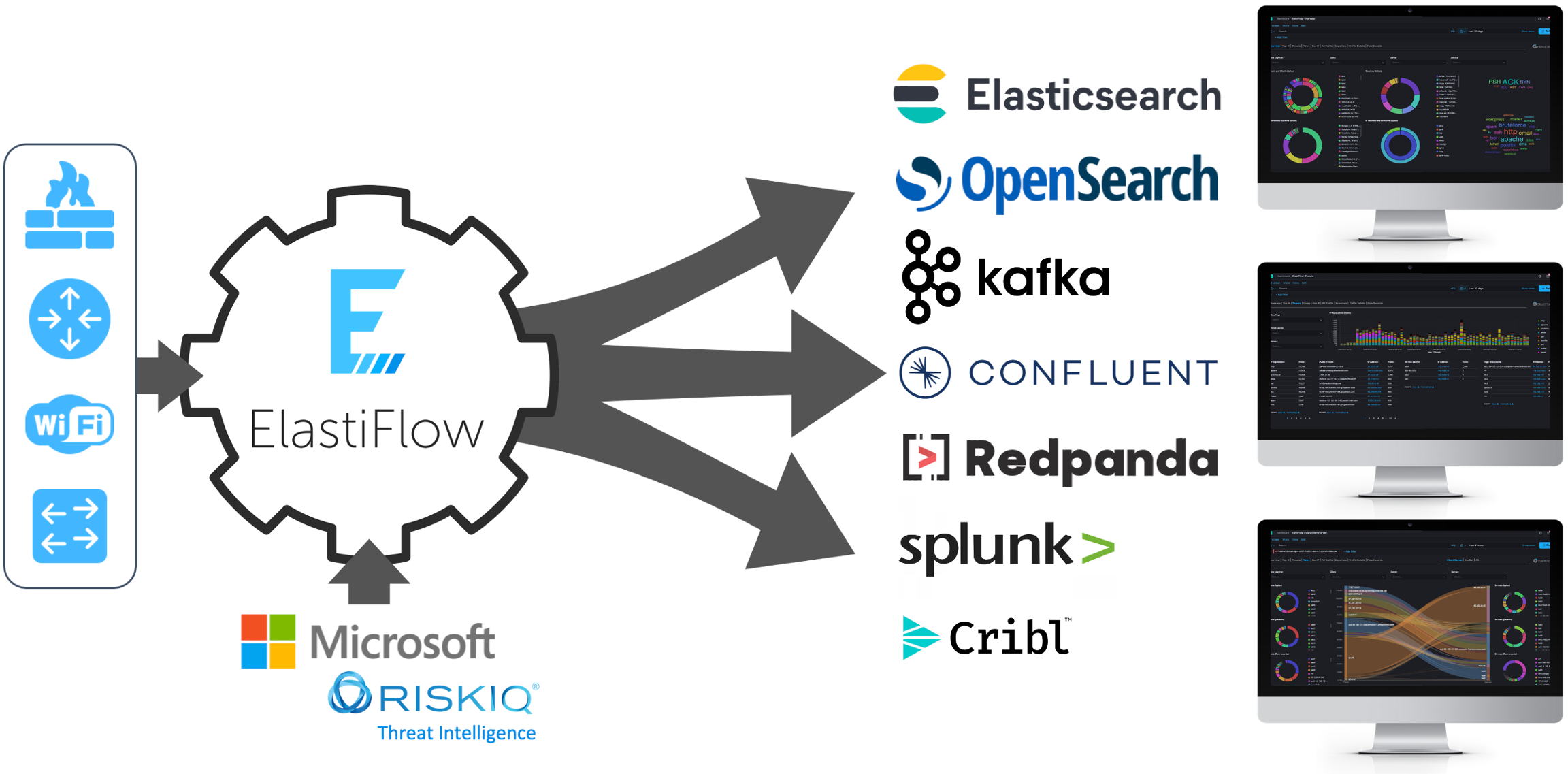Unified Flow Collector Introduction
import DocCardList from '@theme/DocCardList';
ElastiFlow Unified Flow Collector
The ElastiFlow Unified Flow Collector receives, decodes, transforms, normalizes, translates and enriches network flow records and telemetry sent from network devices and applications using IPFIX, Netflow, sFlow and AWS VPC Flow Logs. The resulting records can be sent to various platforms and services, including:
Elasticsearch
Elastic Cloud
Elastic Cloud Enterprise
OpenSearch
AWS OpenSearch Service
Apache Kafka
Confluent Platform
Redpanda
Splunk
Cribl Stream
:::note Support for additional data platforms is planned for future releases. Please reach out to info@elastiflow.com if you have specific requirements that you would like to discuss. :::
Additionally flow records can be enriched with IP reputation tags provided via an integration with the RiskIQ threat intelligence service. This allows for suspicious network activity and at-risk resources to be easily identified and mitigated.

The provided dashboards and additional features are easily imported to provide a turnkey solution, which delivers instant insights into network traffic.
Getting Started
To get started and install the ElastiFlow Unified Flow Collector, please follow the install procedures for installing on Linux or using Docker.